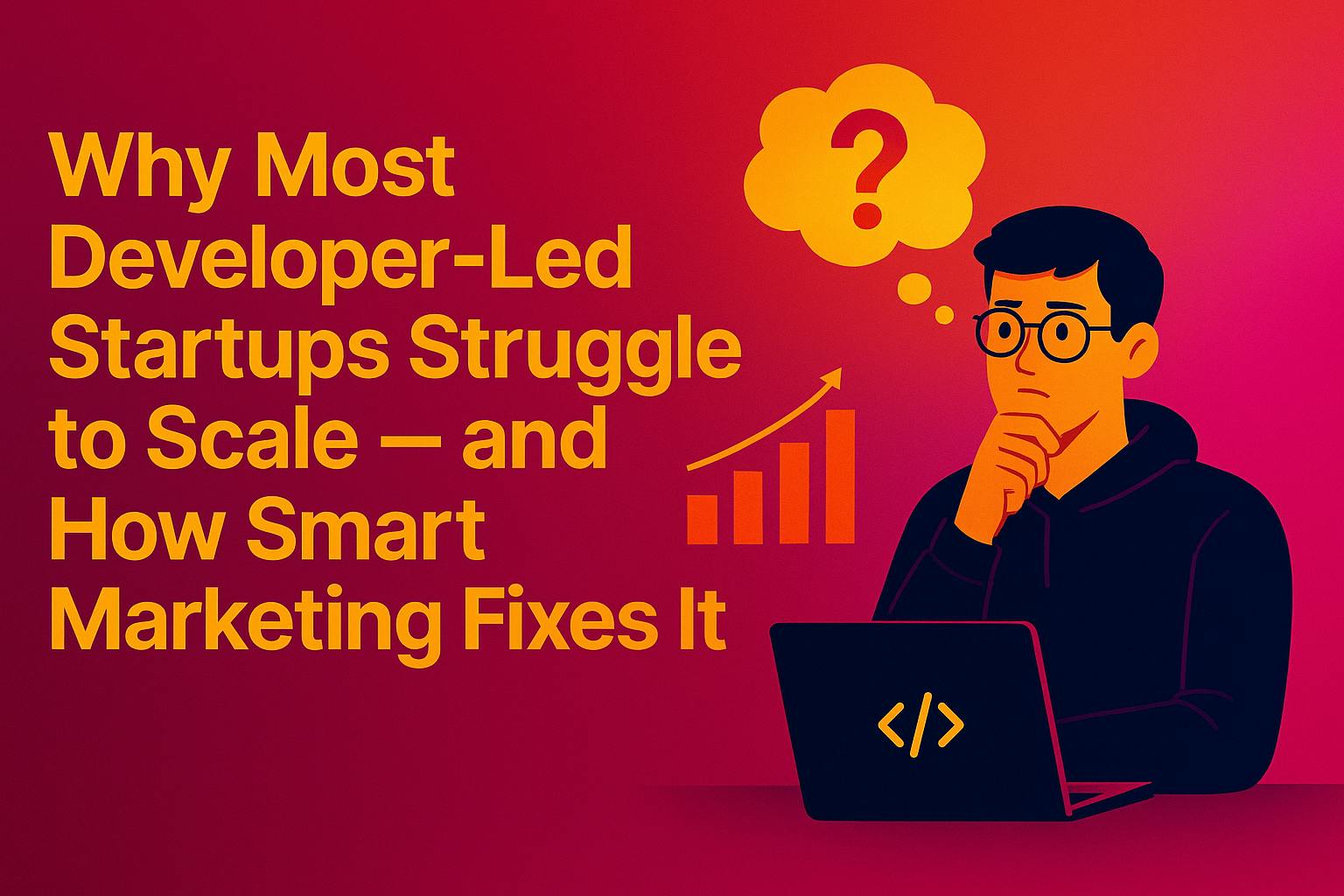“If you build it, they will come.”
Spoiler: They won’t.
Developer-led startups are some of the most innovative and technically sound products on the internet — APIs, productivity tools, SaaS platforms, automations, AI agents, dev infrastructure... you name it. But here's the brutal truth: a brilliant product means nothing if no one knows it exists.
This is the growth bottleneck most developer-founders face.
They focus on building, refining, and optimizing — which is great. But visibility, reach, and demand? Often treated as “we’ll figure that out later.” That “later” never comes — and traction suffers.
The 5 Scaling Roadblocks Dev-Startups Hit
-
They Think the Product Sells Itself
Dev founders often believe performance, design, or innovation alone will attract users. But even the best tools need strategic marketing, storytelling, and positioning to break through the noise. Ever used a worse product that dominates your niche? That’s marketing, not merit.
-
They Ignore SEO Until It’s Too Late
You built a landing page. Maybe even a blog. But no structured SEO. No keyword strategy. No link building. Result? You rank on page 7, buried under competitors.
-
They Underestimate Paid Ads
Google Ads and Meta Ads aren’t magic money pits. With smart targeting, dev tools can drive sign-ups, demos, or MQLs fast — especially if your ICP (ideal customer profile) is well-defined.
-
They Write Content Like Engineers (Not for Humans)
Technical content doesn’t have to be boring. But writing tutorials, use cases, or landing pages that convert is a skill. It’s more than Markdown and code snippets — it’s value, clarity, and purpose.
-
They Delay Building a Brand
Logos, colors, tone — these matter more than you think. Developers respect logic, but customers (including CTOs) buy from brands they remember and trust.
What Smart Marketing Looks Like for Dev-Startups
Step 1: Position Like a Pro
Start with clarity. Who are you helping? Why now? What makes you different? Great positioning = easier targeting, clearer messaging, better conversions.
Step 2: SEO + Content That Wins
You need to use long-tail keywords, optimized landing page, and consistent, high-quality blogs. Think:
- “Best productivity tools for remote dev teams”
- “Top 5 AI agents for developers”
- How to build secure APIs in 2025”
This brings organic traffic. It scales.
Step 3: Performance Marketing that Actually Performs
Run lean paid campaigns to test ICPs, messaging, and conversion flows. Use:
- Google Ads for intent
- Twitter/Reddit for dev niche
- LinkedIn for technical decision-makers
Step 4: Content That’s Developer-Ready, Buyer-Friendly
From blog posts to integration guides to “Why this tool matters” explainers, your content should:
- Be technically accurate
- Speak to real-world problems
- Sell without sounding like it’s selling
Step 5: Track, Optimize, Repeat
You wouldn’t deploy code without monitoring. Same goes for growth.
- Use GA4, Tag Manager, Mixpanel
- Set up conversion events
- A/B test everything
Real-World Example
A small dev startup we worked with had an amazing CI/CD monitoring tool — but zero traffic.
Within 3 months of smart SEO, paid ads, and strategic content.
- Organic traffic: +370%
- Paid CAC: ↓ 42%
- Qualified demo requests: 5× increase
- Revenue? They hired their first sales team
Devs Build the Future — But Marketing Brings It to Life
Smart marketing isn’t just about ads or clicks. It’s about building demand, trust, and visibility — the same way you build code: systemically, iteratively, and intentionally.
If you’re a founder, CTO, or builder stuck in the “we’ll market later” loop — later is now.


